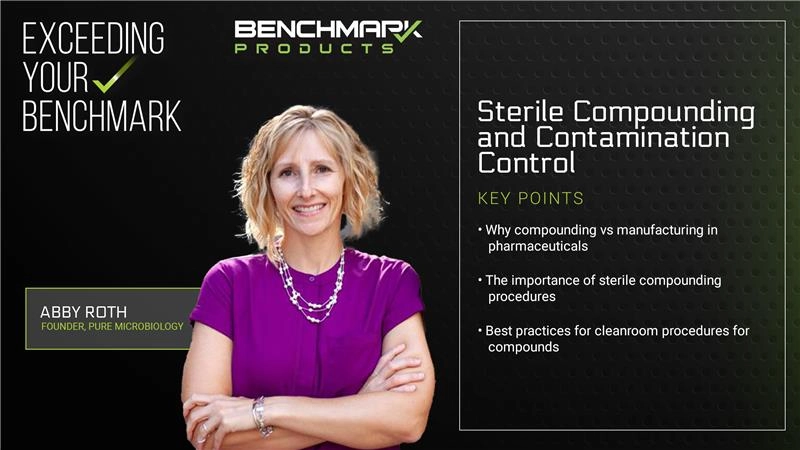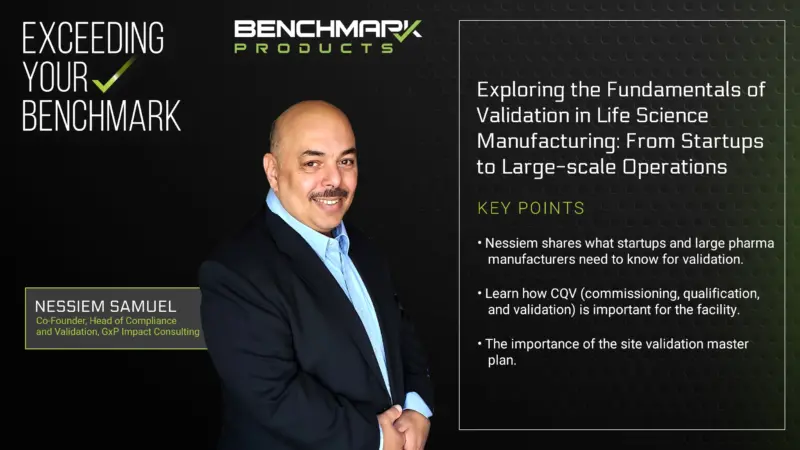Connecting Data to Improve Your Contamination Control Strategies
Contamination control is absolutely critical in the pharmaceutical industry and includes particulate, microbial, product carryover, chemical, and viral aspects of contamination and often involves proactive, reactive, and supporting aspects. However, regulations, liabilities, and patient health added to the mix create data silos that often form multiple processes and make it difficult to create efficient and effective contamination control strategies (CCS).
How can we connect these data silos to create more effective and efficient CCS protocol in the pharma world?
On today’s episode of Exceeding Your Benchmark by Benchmark Solutions, host Gabrielle Bejarano speaks with Sheba Zaman, Head of Product Specialists and Training Services at Novatek International, to talk about how pharmaceutical companies can integrate data use in their processes to improve their contamination control strategies, while abiding by compliance standards and protecting their own data security.
Bejarano and Zaman also discussed…
- Challenges in the pharmaceutical industry with managing compliance data
- How technology can provide visibility in a holistic manner, and the benefits technology can bring in decision-making and trend analysis
- The predicted evolution of compliance software in the next five to ten years
Zaman explained how companies can quell their concerns about cybersecurity: “Cybersecurity is a big concern; data integrity is a big concern. So, companies just do have to make the big investment to mitigate the risks of, for example, cyber security. They need to do a data integrity risk assessment. So, for any solution that they are implementing to go through the data integrity guidance requirements and basically go through the solution and ensure that both your process and your solutions are meeting the data integrity requirements. Go through that validation process.”
Sheba Zaman is an experienced Computer Systems Analyst who has worked with Life Sciences information technology. She is Head of Product Specialists and Training Services at Novatek International and was previously Director of Sales, Senior Product Specialist, and Manager of Technical Sales. Zaman also attended Concordia University, where she earned a BS in Computer Science at Marianopolis College, where she earned a DEC in Health Sciences.



